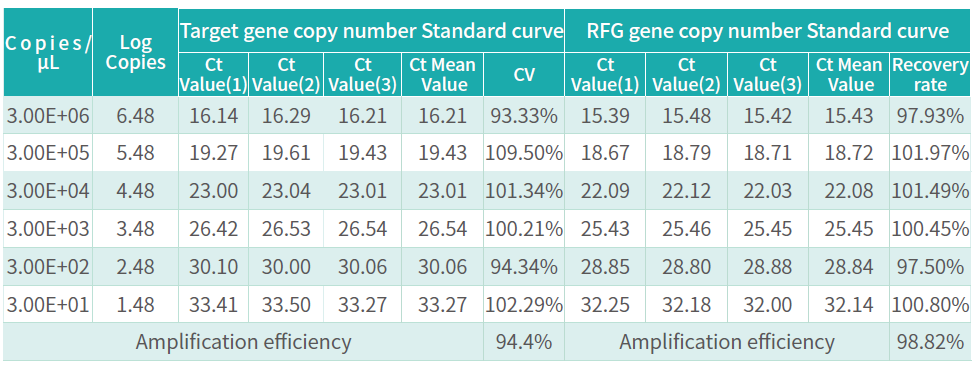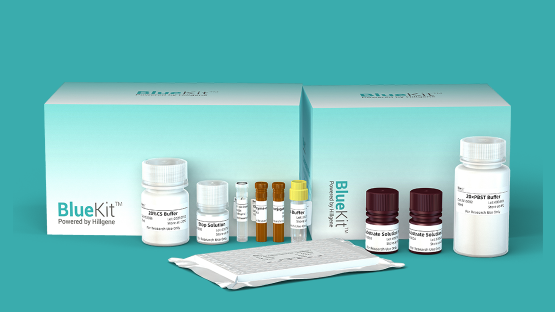Advanced CAR Gene Kit for Precise Gene Copy Number Analysis
Advanced CAR Gene Kit for Precise Gene Copy Number Analysis
$ {{single.sale_price}}
In the rapidly advancing field of gene therapy, precision is paramount. BlueKit's CAR/TCR Gene Copy Number Detection Kit (Multiplex qPCR) emerges as a cornerstone technology designed to meet the intricate demands of researchers and clinicians alike. With the CAR Gene Kit at the heart of this innovative solution, BlueKit is committed to enhancing the accuracy and efficiency of detecting gene copy numbers in CAR and TCR engineering projects.
The realm of CAR-T cell therapy has shown promising results in treating various types of cancers, making the precise detection of CAR and TCR gene copy numbers crucial for understanding the efficacy and safety of these therapies. The CAR Gene Kit by BlueKit is specifically developed to address these needs, utilizing cutting-edge multiplex qPCR technology for unparalleled precision and reliability. Whether for research, clinical trials, or therapeutic application, this kit offers a robust tool for quantitating the integration of CAR and TCR genes into the genome, a crucial step in the development and monitoring of gene-modified cell therapies. Our CAR/TCR Gene Copy Number Detection Kit is not only a testament to BlueKit's commitment to supporting groundbreaking gene therapy research but also an indispensable asset for laboratories aiming to push the boundaries of medical science. With an easy-to-use protocol, this kit ensures that researchers can focus on their groundbreaking work without worrying about the reliability of their experimental data. The CAR Gene Kit is your partner in navigating the complex landscape of genetic engineering, providing clear, concise, and accurate results that pave the way for the next generation of therapeutic innovations. Join us in unlocking the potential of gene therapy, and advance your research with the precision and reliability of BlueKit’s CAR Gene Kit.
|
Standard curve
|

|
Datasheet
|

The realm of CAR-T cell therapy has shown promising results in treating various types of cancers, making the precise detection of CAR and TCR gene copy numbers crucial for understanding the efficacy and safety of these therapies. The CAR Gene Kit by BlueKit is specifically developed to address these needs, utilizing cutting-edge multiplex qPCR technology for unparalleled precision and reliability. Whether for research, clinical trials, or therapeutic application, this kit offers a robust tool for quantitating the integration of CAR and TCR genes into the genome, a crucial step in the development and monitoring of gene-modified cell therapies. Our CAR/TCR Gene Copy Number Detection Kit is not only a testament to BlueKit's commitment to supporting groundbreaking gene therapy research but also an indispensable asset for laboratories aiming to push the boundaries of medical science. With an easy-to-use protocol, this kit ensures that researchers can focus on their groundbreaking work without worrying about the reliability of their experimental data. The CAR Gene Kit is your partner in navigating the complex landscape of genetic engineering, providing clear, concise, and accurate results that pave the way for the next generation of therapeutic innovations. Join us in unlocking the potential of gene therapy, and advance your research with the precision and reliability of BlueKit’s CAR Gene Kit.
{{item.c_type}}
{{item.title}}
{{item.c_time_limit}}
{{item.title}}
Number
Overview
Protocols
Specifications
Shipping & Returns
Video Recording
Cat.No. HG-CA001 $1,508.00
This kit is designed for the quantitative detection of CAR gene copy number in the genome of CAR-T/TCR-T cells prepared by using HIV-1 lentiviral vector technology.
This kit adopts the fluorescent probe method and multiplex PCR method to detect the DNA sequence related to integration or expression function on the transfer plasmid and the reference gene (RFG) in human cells, and the CAR gene copy number/cell in the sample can be calculated.
The kit is a rapid, specific and reliable device.
| Performance |
Assay range |
|
|
Limit of quantitation |
|
|
|
Limit of detection |
|
|
|
Precision |
|



















